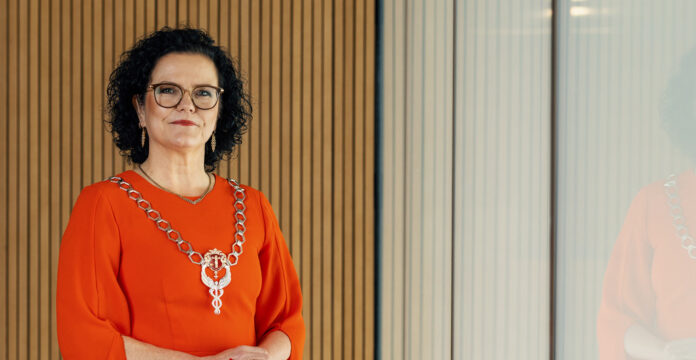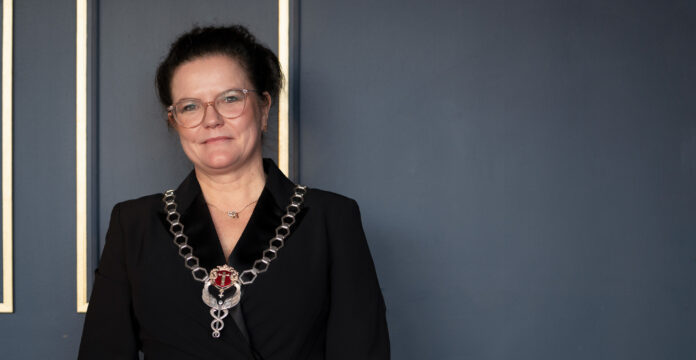This means an accreditation ‘full house’ in the sense that all of our international programmes in business studies have now received this prestigious accreditation. Since our Finnish-language programmes are designed, delivered and managed in much the same ways as the international programmes, it is probably fair to say that all our Master’s education currently meets high international standards.
Next in line for accreditation will be the programmes in technology that are making final preparations for the EUR-ACE/Euro-Inf accreditation evaluation in the spring next year. On top of this, business studies at the University of Vaasa is in the early stages of working towards AACSB accreditation (Association to Advance Collegiate Schools of Business) – a process that will affect, directly or indirectly, most parts of the university.
Accreditations can be costly and create a lot of work for people in different parts of the university. Partly for this reason, accreditations can attract criticism and resistance. Some argue that it is a bureaucratic way of reporting to others what we already knew, no one cares about accreditations (e.g. students, politicians), and they are too standardised and not sensitive to our specific needs. So why do we put ourselves through this?
Whilst there is a small element of truth to a lot of these criticisms, the short answer is that the benefits far outweigh the costs.
Systematically putting our operations through tough external evaluations is a key part of our university’s quality assurance system. In this sense, accreditations function in a similar way to the national auditing (Karvi), our invited research evaluations, and our education programme inspections. One way to ensure our standards remain high is to put them to the test.
Accreditations also apply the kind of scrutiny that we typically do not apply ourselves. For instance, when the EPAS review panellists visit us they read a cross-section of our students’ exams and coursework in order to evaluate whether it meets international quality standards. International accreditations can therefore also serve as a useful benchmarking process – it is usually a peer evaluation so we also get to learn from other universities.
Accreditations are also useful in ascertaining whether we are operating at the cutting edge (e.g. digital pedagogy, programme design, working life skill development), and most accreditation panels still include at least one ‘local’ representative who’s role is to ensure that the evaluation takes into account the Finnish higher education context. In my university leadership experience, I have witnessed first-hand how accreditations – both the work leading up to the evaluation, as well as the feedback and recommendations during the process – can drive real change, perhaps even more than if the message were to come from me.
Accreditations are also very inclusive. They deliberately involve and want to hear from many different stakeholders (management, directors, teachers, university services, students, alumni, industry representatives), and all these elements need to be working in order to be accredited. They acknowledge that quality is the product of a team effort.
A common misconception is that accreditations push universities towards standardised models and ways of operating. It is true that they apply the same standards, but this is not the same as standardisation. From a strategy and marketing perspective, they are in contrast keen to know how we think we stand out and are different from others. In reality, accreditations are more about imposing the same tough questions rather than the same models. Answers can differ from one university to another; they just need to be convincing.
One challenge for universities is that in order to be convincing we should really be able to provide proof. If we struggle to find evidence for even some basic criteria, then this perhaps already says something. For instance, what do our students go on to do after graduation (placement, roles, career progression), or what do we do for our alumni and do they do for us? How well qualified are your teachers and researchers, and to what extent does their teaching and research have a business and societal impact? However, getting better at providing this kind of evidence isn’t just about making external reporting easier; it should also lead to better information on which to make key decisions, as well as being used in our marketing efforts to attract students, faculty and partners.
Whilst it is difficult to conclude about the effect of an accreditation label on, for example, student and faculty attraction, it is already having a sizeable impact on which institutions are willing to cooperate and form partnerships with us. Accreditations are useful indicators of whether a potential partner upholds high international standards and is committed to continuous improvement, especially when this information is difficult to obtain. But I would also argue that we should be striving for excellence via accreditations whether students and faculty acknowledge this or not – the main thing is that their study and working experience with us is more rewarding as a result.
Adam Smale
The author is the Dean of the School of Management at the University of Vaasa



